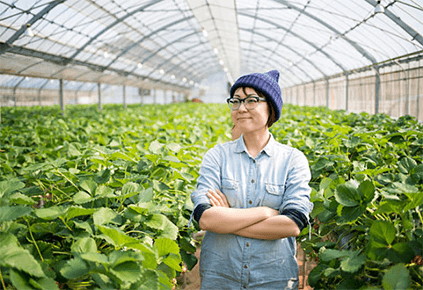According to UN projections, the global population will hit 9.7 billion by 2050. As a consequence, it will raise the demand for food supplies by 60%. Unfortunately, existing climate change does not guarantee food security. As a result of the scarcity of raw materials, many countries are increasing efforts in food sustainability to secure future viability. Singapore is increasing its efforts to promote sustainability through various efforts, including environmentally cautious farming methods and reduced food waste. Let us look at what sustainable food in Singapore entails and its benefits.
What Is Food Sustainability?
With the increasing environmental awareness, many people and countries adopt sustainable food or farming methods to protect the environment. Food sustainability involves the production, processing, distribution, disposal, and import of food products to protect natural resources and promote the diversity of plants and animals. The processes should also contribute to local economies, reduce wastage of natural resources and provide social benefits like quality food and health products. The combination of sustainability efforts guards against resource depletion and guarantees food availability for future generations.
How Agriculture Promotes Food in Sustainability Singapore
With the scarcity of land resources, the country has produced only 10% of the local food demand. The unpredictable weather patterns and climate change are causing drought and floods, which disrupt farming patterns. The global disruption in the food supply is increasing the need for self-sufficiency in food production.
Switching to eco-friendly agricultural methods is boosting sustainability efforts in the country. For instance, the introduction of hydroponics and urban farms on top of building structures increases the food supply and promotes local consumption. Apart from farming in underutilized spaces, there has been the introduction of eco-friendly greenhouses designed to allow maximum air circulation. The greenhouses produce healthy plants due to the airflow.
Most eco-friendly agricultural methods promote the conservation of natural resources and are economically viable. They also provide social benefits for the whole community.
Tips for Promoting Food Sustainability
You can contribute to food sustainability by adopting practices that protect biodiversity and the environment. Some of the popular ways to promote sustainability include:
1. Buy Food Locally
Buying local ingredients gives you fresh farm produce that is good for your health. It also cuts down on transportation costs and the emissions of greenhouse gases during transportation and importation. Besides, you can determine the production methods to ensure you are eating organic food when using local ingredients.
2. Grow Your Food
Aside from shopping from environmentally conscious companies, you can start a small garden to grow your food. A small vegetable garden or a fruit orchard adds fresh produce to your kitchen and positively impacts the environment. Besides, you can support viable agricultural techniques like organic farming. When you grow food, ensure you rotate crop varieties to keep the soil healthy. Planting the same crops every time sucks the soil’s nutrients necessitating the use of fertilizers. You can also use organic manure when planting to avoid chemical-laden produce. In your farming, you should also avoid pesticides that can take a toll on your soil. If you rear animals, use organic feeds as opposed to food additives.
3. Moderate Your Meat
While it is advisable to reduce red meat for health reasons, meat is also a contributor to unsustainable food practices. For instance, livestock contributes to 14% of greenhouse gas emissions, aside from causing environmental damage and reducing water levels. The environmental burdens also increase during the rearing and transport of livestock since they require more food, water, and energy than plants. Therefore, reducing meat in your diet can promote sustainability. While they provide essential proteins and vitamins, you can find plant-based sources of the nutrients.
Fish is a healthy choice of meat, but some species are on the brink of extinction due to overfishing. Also, fishing methods for specific species cause more harm to the environment. However, you can try out new seafood like sardines and anchovies, which are low in the food chain and do not consume other fish. The methods of fishing sardines also cause little environmental impact.
4. Prioritise Plant-based Meals
Shifting to vegetables and fruits promotes sustainability while boosting your health. For instance, plant-based produce preserves the environment by minimizing greenhouse gases and increasing the availability of freshwater. Besides, plants such as garden peas and beans improve soil fertility by adding nitrogen to the soil.
5. Waste Less Food
In the past decade, the amount of food waste by Singaporeans has increased by 20%. That is a worrying trend since they have to import most of the food to meet the existing demand. Therefore, strive to toss out less food by ordering groceries that you can finish. Bulk buying can be convenient, but you should only buy durable products to avoid throwing out rotten food.
Promoting food sustainability requires personal initiative and investment. However, the benefits are worth the effort. Besides, you will be securing the future of upcoming generations.



